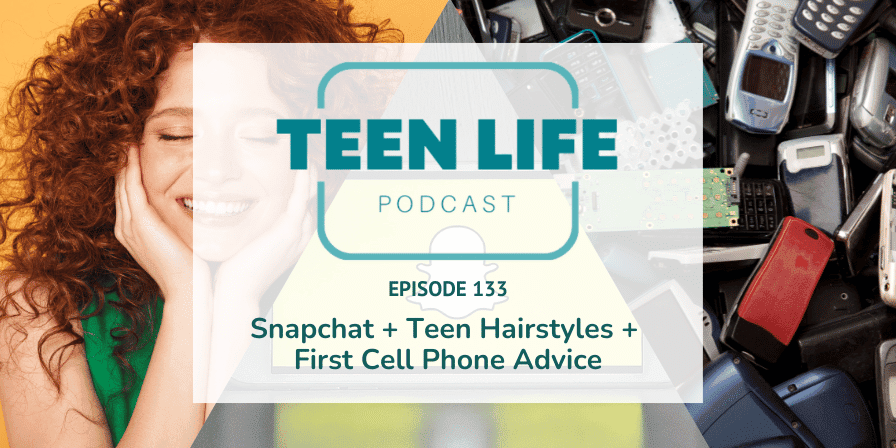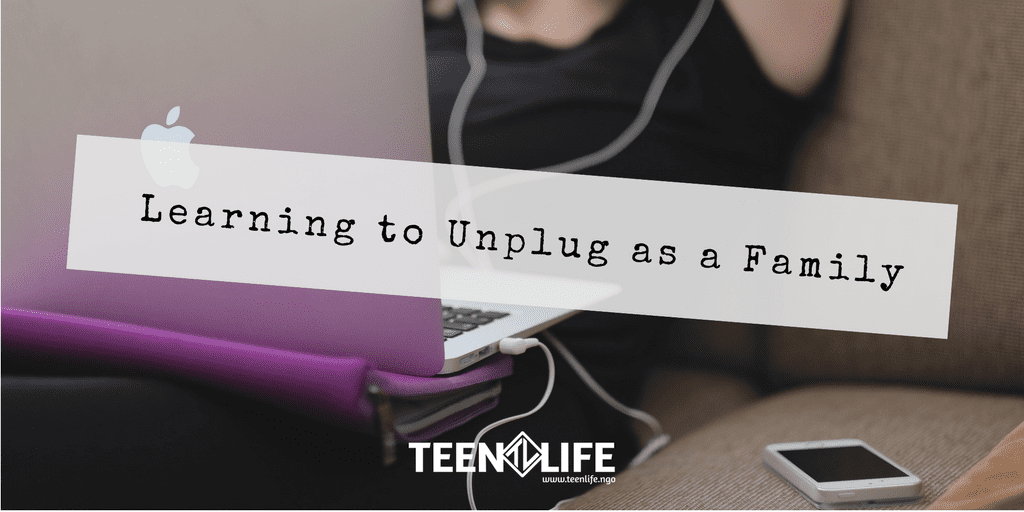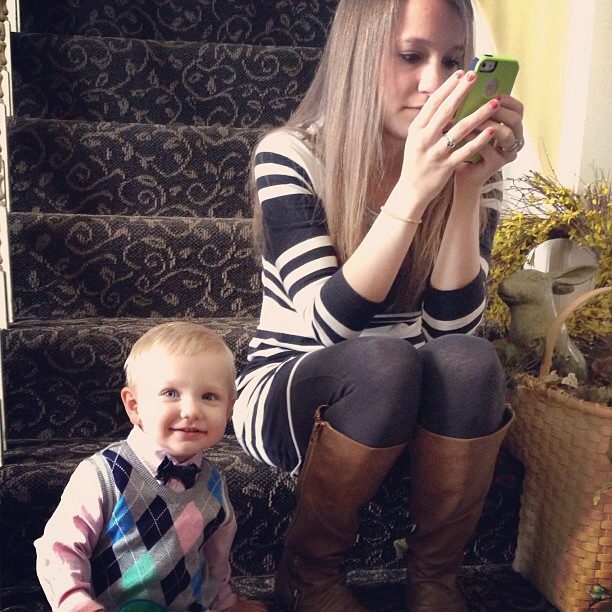
Snapchat + Teen Hairstyles + First Cell Phone Advice | Ep. 133
Podcast: Play in new window | Download
Are you ready for your child’s first cell phone?
There’s a lot to consider before putting your child’s first cell phone under the tree this Christmas. If you’re not sure what to look for or how to set your teen up for success, keep reading or hit the play button! We’ve got talking points, tips, and phone options to consider before you complete your order.
We’ll also give you the latest on teen hairstyles for boys and girls and what you need to know about what’s new on Snapchat.
What’s new on Snapchat?
New Features
Live Maps
With Live Maps, you can see where your friends are and, in return, they can see your location. To enhance privacy, you can enter “ghost mode” in your settings, ensuring your location remains hidden. Live Maps also showcases “Hot Spots,” allowing you to explore trending areas and see other users’ posts, even if they’re not in your friend list.
Spotlight
Snapchat’s answer to the popular short-form video format seen on Reels and TikTok is called “Spotlight.” This feature lets users create and share short video content with a wide audience, giving you a chance to showcase your creativity and gain followers.
Snapchat+
For those who want an enhanced Snapchat experience, Snapchat+ is available for a monthly fee of $3.99. With Snapchat+, you can customize your Snapchat experience by moving or removing the Snapchat AI chatbot, setting custom story expiration lengths, personalizing badges, enjoying Story Boost, and having extra Snap Replays. While some of these features may seem trivial, they can be a fun way to personalize your Snapchat usage.
Family Center
The introduction of Family Center is a significant step by Snapchat to address concerns about child safety on the platform. This in-app tool allows parents to monitor their teenage children’s interactions on Snapchat without invading their privacy. Parents can see who their children are interacting with, and Snapchat has plans to enhance this feature in the future. However, parents cannot set time limits for app usage or eavesdrop on private conversations.
Pros of Snapchat Parental Monitoring
The Family Center feature allows parents to keep an eye on their teenage children’s Snapchat activity, providing an extra layer of security.
Discover Fun New Places on Snap Maps
Live Maps and Hot Spots make it exciting to discover new places and activities, both locally and globally.
A Way to Stay Connected
Snapchat remains a popular platform for staying connected with friends and family through photos, videos, and messages.
A Way for Young People to Get News
The “Discover” tab offers a unique way for younger users to access news, trends, and entertainment.
Cons of Snapchat Limited Monitoring
While Family Center provides some parental control, it’s not as robust as some parents may desire, lacking features like setting time limits.
Location Tracking
The Live Maps feature, while exciting, raises concerns about location tracking and privacy.
Disappearing Messages and Photos
The ephemeral nature of Snapchat content can be a double-edged sword, as it can lead to misunderstandings or miscommunication.
What’s trending in teen hairstyles
Trending Styles for Boys
Mullets
The ’80s-inspired mullet is making a fierce comeback. This iconic hairstyle, characterized by shorter hair on the sides and back with longer hair at the top, offers a unique blend of vintage charm and contemporary flair. With modern variations and a hint of rebellion, the mullet is capturing the hearts of young boys looking to make a statement with their hair.
Perm Fronts
Perms are no longer limited to your grandma’s era. Boys are embracing perm fronts, adding texture and volume to their hair while keeping the sides short and neat. This trend allows boys to experiment with their style and achieve a unique look that stands out.
Swoops
Swoops are all about bangs and fringes that create a dramatic, eye-catching effect. They add a touch of sophistication and can be adapted to various lengths and textures, giving boys the flexibility to express their personality through their hairstyle.
Trending Hairstyles for Girls
Bangs (Taylor Bangs & Curtain Bangs)
Bangs never go out of style, and this year we’re seeing the resurgence of Taylor bangs (inspired by Taylor Swift) and curtain bangs. These styles frame the face beautifully, offering a chic and timeless look that can be customized to suit any hair type or length.
Natural Curls
Embracing natural curls is a growing trend that emphasizes the beauty of one’s hair in its true form. Girls with naturally curly hair are flaunting their stunning locks, and many are opting for shorter, textured cuts that emphasize their curls’ natural bounce and vibrancy.
Heatless Curls/Crimped
Girls are exploring heatless methods to achieve those coveted beachy waves and crimped textures. Heatless curls and crimps are not only more gentle on the hair but also showcase a fun and effortless style that’s perfect for any occasion.
Embracing Natural Hair
- 80% of Black women reported having to change their hair to fit into the workplace.
- Black women are 1.5 times more likely to be sent home from the workplace because of their hair.
- Shockingly, 100 percent of Black elementary school girls in majority-white schools who report experiencing hair discrimination state they experienced the discrimination by the age of 10.
Starting from September 1, 2023, the CROWN Act came into effect in Texas schools, marking a significant step forward. The Texas statute clearly states that any dress or grooming policy adopted by a school district “may not discriminate against a hair texture or protective hairstyle commonly or historically associated with race.” This law is a beacon of hope for a more inclusive and respectful world where people are free to express their cultural heritage and personal style without fear of discrimination.
Are you thinking of getting your kid their first cell phone this Christmas?
The holiday season is approaching, and if you’re contemplating whether to gift your child their first cell phone, you’re not alone. The question of when to introduce your child to a smartphone is a topic that many parents grapple with, and there’s no one-size-fits-all answer. In this blog post, we’ll explore the complexities of this decision and offer some guidance to help you navigate this milestone.
No “Right Age” for a First Cell Phone
It’s essential to understand that there’s no universal “right age” for a child to receive their first cell phone. While the “Wait Until 8th” pledge has gained popularity, it’s worth noting that it’s becoming less practical in the modern age of technology. The demands of school, the need for communication, and the prevalence of digital tools make the decision more complex than ever.
Recent Trends in Kids’ Smartphone Ownership
Recent survey data shows that 42% of kids in the United States have their first cell phone by the age of 10. By the time they reach 14, smartphone ownership climbs to an astounding 91%. While these numbers offer a snapshot of current trends, they shouldn’t be the sole basis for your decision.
Developmental Readiness Over Age
Experts emphasize that developmental readiness is more important than age when considering a child’s first cell phone. Some important developmental milestones that might guide your decision include:
- Complex Thoughts and Improved Reasoning: Can your child handle more complex thoughts and reasoning? Are they capable of making responsible decisions?
- Developing Solutions: Is your child showing signs of developing their own solutions to problems? Are they becoming more self-reliant?
- Empathy and Consideration: Is your child demonstrating empathy and thinking of others? Are they mindful of how their actions affect those around them?
- Understanding Right and Wrong: Are they developing a stronger sense of right and wrong? Are they able to distinguish between appropriate and inappropriate behavior?
- Respecting Boundaries: Is your child responding appropriately to limits and boundaries set by parents and teachers?
Talking About Expectations
Before you decide to get your child a cell phone, it’s crucial to have a conversation about expectations. Consider creating a contract together that outlines how they will and won’t use their phone. Here are some important questions to get the conversation started:
- What would you use the phone for, and why do you need it?
- How much daily phone usage do you think is appropriate?
- Where will you charge your device at night?
- Are there times during the day when phone use should be restricted?
- What are the rules about using the phone at school?
- What consequences should be in place if the phone is lost?
Alternatives to Smartphones
If you’re not comfortable giving your child a smartphone but want to provide them with a communication device, there are alternatives to consider:
Smart Watches
Options like the Gabb Watch, Bark Watch, Apple Watch SE, Gizmo Watch, and TickTalk Watch offer limited functionality, allowing communication without full internet access. However, be aware that many schools are now banning smartwatches in the classroom, so they may need to remain in lockers or backpacks during school hours.
Kid Phones
Devices like the Gabb Phone, Pinwheel, Light Phone 2, and Wisephone are designed for children and provide essential communication features without the distractions of a full-fledged smartphone.
Flip Phones
Consider getting a basic flip phone with no internet access. While this may limit some features, it can provide a communication tool without the added distractions of smartphones. The decision to get your child their first cell phone is a personal one that depends on many factors. Focus on your child’s developmental readiness and have an open, honest conversation about expectations and responsibilities. There are various communication alternatives to consider if you’re not ready to provide a smartphone.
Ultimately, the key is to make a decision that aligns with your family’s values and ensures your child’s safety and well-being in the digital age.
In this episode, we mentioned or used the following resources about your child’s first cell phone, teen hairstyle trends and Snapchat.
- Snapchat Family Center
- WFAA: He served a 2-week suspension for his hair. When he returned with the same hairstyle, he was suspended again
- Forbes: What Is The Best Age For A Child’s First Smartphone?
- WaitUntil8th: Smartphone Alternatives
- Podcast music by Luke Cabrera & Tobin Hodges
Have a question?

Karlie Duke
Communications Director

Tobin Hodges
Program Director

Caleb Hatchett
Podcast Host
Caleb Hatchett | Podcast Co-Host
Caleb loves helping teenagers take ownership of their faith and relationships. He graduated from Abilene Christian University with a degree in Youth and Family Ministry and is currently Student Ministry Director at Jenks Church in Oklahoma.
Tobin Hodges | Program Director
Tobin’s entire career has been centered around students and teens from all walks of life. He has a passion for helping teens be their best selves. As Program Director, he loves working directly with school staff and students through Teen Life Support Groups. Tobin has a Bachelor’s Degree in Music from Texas Tech University.
Karlie Duke | Director of Communications
Karlie has always had a heart for teenagers. Through her role at Teen Life, she loves to showcase the amazing stories coming out of Support Groups, but she is especially passionate about helping adults and teenagers find connection. Karlie has a BS in Communications with a minor in Family Studies from Abilene Christian University.











